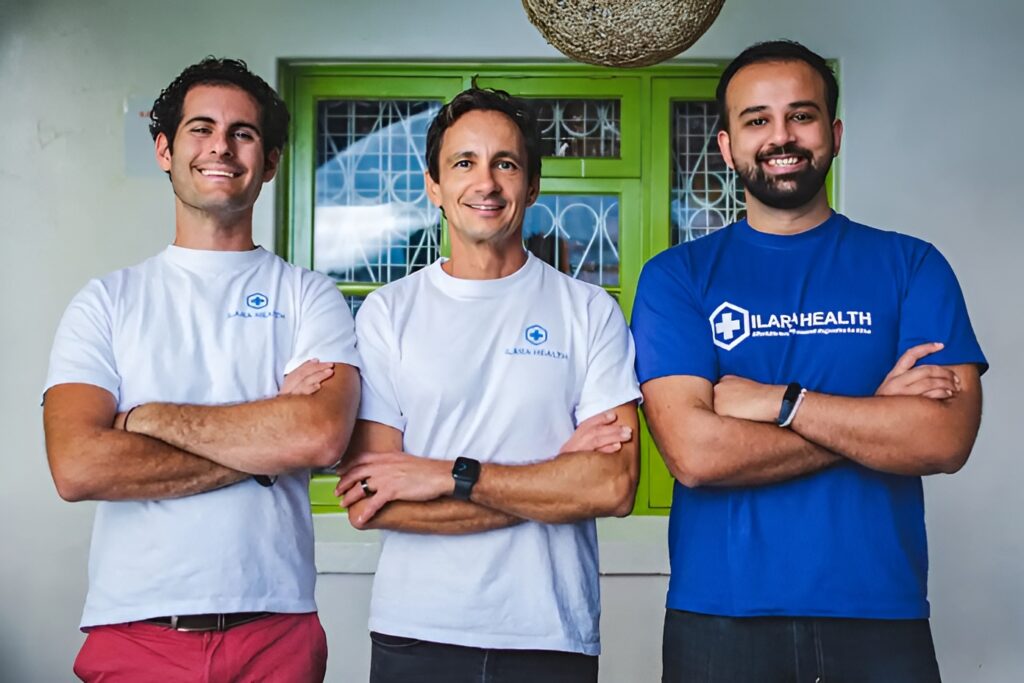Emilian Popa, Maximilian Mancini, and Sameee Afzal Farooqi. Image Credits: Ilara Health
Kenya-based health-tech startup, Ilara Health has received a $1 million loan from The United States International Development Finance Corporation (DFC). The loan initiative forms part of DFC’s broader plan to solve pressing global challenges in health, energy, and food security while promoting the US foreign policy objectives. This investment is aimed at enhancing private outpatient clinics in Kenya by equipping them with diagnostic devices, health management technology, and pharmaceutical products.
Emilian Popa, Maximilian Mancini, and Sameee Afzal Farooqi founded Illara Health in 2019 with an initial focus on leasing diagnostic devices to clinics. In the course of time, the startup expanded its array of offerings to include pharmaceutical products, hospital furniture, and practice management software. The company now serves over 3,000 clinics across Kenya , a good percentage of the estimated 15,000 operational clinics in the country.
Ilara Health has become a major player in Kenya’s private health-tech sector. The startup seeks to address the gap in quality healthcare by providing affordable medical equipment and pharmaceutical products. The $1 miilion loan from DFC complements a prior $4.2 million pre-Series A debt-equity round in 2024. DOB Equity, Phillips Foundation, and other prominent players all participated in the funding.
The clinics are located in residential areas, providing a reliable alternative to Kenya’s under-resourced public healthcare system. Public healthcare facilities struggle with equipment breakdowns and inconsistent service delivery. This has driven towards private healthcare inspite of how costly it is.
Ilara Health has forged partnerships with manufacturers. One of those manufacturers was Butterfly Network, which supplies the startup affordable, portable diagnostic tools such as ultrasound devices. These tools empower clinics to offer scanning services to underserved communities. Additionally, Ilara Health provides subscription-based practice management software at a monthly fee of KSh 1,000 ($6.25). This software digitizes clinic operations, streamlining patient data management and financial reporting while facilitating compliance with Ministry of Health requirements.
Popa announced that the data collected through the software would also support Ilara Health’s plans to offer working capital loans of up to $15,000 to clinics. “This initiative will enable clinics to manage their finances more effectively, improving their capacity to deliver quality care,” he said.
“In Kenya, quality of care, not access, is the issue. Our goal since launch has been to improve the standards of care…We live in a place where access to outpatient care is limited. We have been building a provider model and are now reaching patients directly to complete the cycle” said Popa. He also emphasized that many private clinics lacked essential diagnostic devices or basic infrastructure, limiting their ability to provide quality care.
The $1 million loan to Ilara Health is part of a larger portfolio of 22 transactions approved by DFC in the first quarter of FY2025, amounting to nearly $3 billion. These transactions underscore DFC’s commitment to advancing global health, energy, and food security while supporting small businesses and critical infrastructure projects worldwide.

